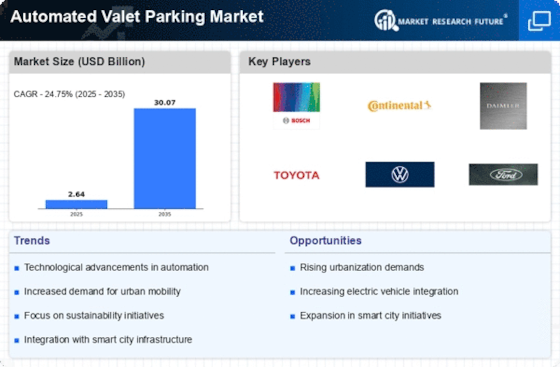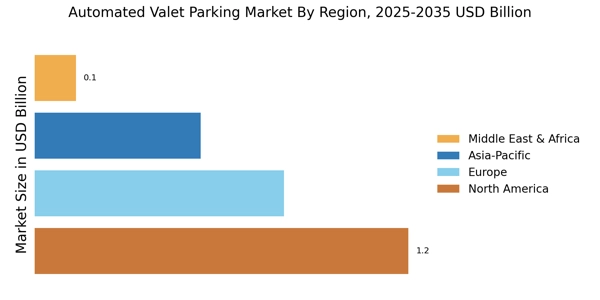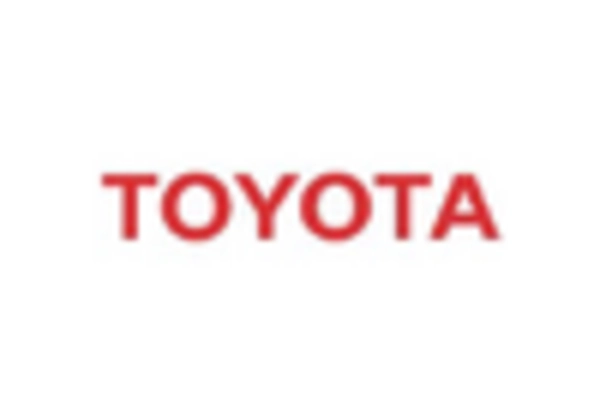Environmental Concerns
Growing environmental concerns are driving the Automated Valet Parking Market towards more sustainable practices. As awareness of climate change and pollution increases, there is a pressing need for solutions that reduce carbon footprints. Automated valet parking systems can contribute to this goal by optimizing vehicle flow and reducing idle times, which in turn lowers emissions. Furthermore, these systems can be integrated with electric vehicle charging stations, promoting the use of eco-friendly transportation. The market is witnessing a shift towards sustainability, with many stakeholders prioritizing green technologies. This trend indicates that the Automated Valet Parking Market is likely to expand as it aligns with global sustainability goals.
Increased Urbanization
The rise in urbanization is a pivotal driver for the Automated Valet Parking Market. As cities expand and populations grow, the demand for efficient parking solutions intensifies. Urban areas often face space constraints, making traditional parking methods less viable. Automated valet parking systems offer a solution by maximizing space utilization and reducing the footprint of parking facilities. According to recent estimates, urban populations are projected to reach 68% by 2050, further exacerbating parking challenges. This trend suggests that the Automated Valet Parking Market could see substantial growth as municipalities and developers seek innovative solutions to accommodate increasing vehicle numbers while maintaining urban aesthetics.
Technological Integration
The integration of advanced technologies is transforming the Automated Valet Parking Market. Innovations such as artificial intelligence, machine learning, and IoT are enhancing the functionality and efficiency of automated parking systems. These technologies enable real-time data processing, allowing vehicles to navigate and park autonomously with minimal human intervention. The market for smart parking solutions is expected to grow significantly, with projections indicating a compound annual growth rate of over 15% in the coming years. This technological evolution not only improves user experience but also aligns with the broader trend of smart city development, positioning the Automated Valet Parking Market as a key player in urban mobility solutions.
Consumer Demand for Convenience
The demand for convenience among consumers is a significant driver for the Automated Valet Parking Market. As lifestyles become increasingly fast-paced, individuals seek solutions that save time and reduce stress. Automated valet parking systems offer a seamless experience, allowing users to drop off their vehicles and attend to other matters without the hassle of finding parking. This convenience is particularly appealing in high-traffic areas such as airports, shopping centers, and urban hubs. Market Research Future suggests that consumer preferences are shifting towards services that enhance convenience, indicating a robust potential for growth in the Automated Valet Parking Market as it caters to these evolving demands.
Regulatory Support and Incentives
Regulatory support and incentives play a crucial role in shaping the Automated Valet Parking Market. Governments are increasingly recognizing the benefits of automated parking solutions in addressing urban mobility challenges. Policies that promote the development and implementation of smart parking technologies are emerging, providing a favorable environment for market growth. Incentives such as tax breaks and grants for companies investing in automated systems further stimulate innovation and adoption. As regulatory frameworks evolve to accommodate these technologies, the Automated Valet Parking Market is likely to experience accelerated growth, driven by both public and private sector collaboration.

















